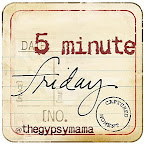Lectio Divina--Day Three
[Here is part three and the final installment of a brief series on the spiritual practice of Lectio Divina. Click here for part one, and here for part two.]
I can’t count the number of times this happens every day:
I can’t count the number of times this happens every day:
* I
examine my work in light of my colleagues’, and I ask:
Am I productive enough? Smart
enough? Approachable enough?
* I
evaluate the quality of my parenting against the standard I create by watching
mothers I know, and then I worry: Am I as close to my children as she is to
hers? Too harsh? Too lenient?
Not fun enough? Too frivolous?
* I
observe my friends’
social graces, and I wonder: Am I kind
enough? Witty enough? Outgoing enough?
Perhaps it’s normal to think this way. I'm not sure. This habit of thinking, though, typically
produces yet another item for an ever-growing list of what I am not.
And when I approach my
spiritual journey from the same vantage point, the results are even more
incriminating.
·
I encounter one
believer’s amazing
generosity and recognize my own fierce attempt to hold tightly to any blessing
that comes my way.
·
I see someone’s unwavering trust
in the midst of unimaginable hardship and realize my own tendency to vacillate.
·
I hear a
Christ-follower describe the ways God speaks when she prays hear an unnerving question
whispering loud from the back of my mind:
Why doesn’t
He talk to you that way, Anne?
These are some of the
reasons it’s hard to imagine
myself as anywhere near qualified to have been in the boat during that pre-dawn
storm. But if somehow I had been one of
the twelve, there’s
one thing I’m sure of: I would NOT have been Peter.
I would’ve been one of the others. One who didn’t recognize Jesus at first. One who was terrified at seeing what I
thought was a ghost. One who sat watching
while my zealous friend made that audacious request for Jesus to call him onto
the water, thinking he could walk on it too.
In that moment, I
would have been comparing myself to Peter.
And I would’ve fallen disappointingly short.
And I would’ve fallen disappointingly short.
If you’d been one of the disciples that night,
what might you have felt?
* Would
you have feared for Peter’s
safety?
* Would
you have dismissed this as just another example of his often-overblown
self-importance?
* Would
you have rolled the eyes of your heart in secret disdain when he faltered?
* Would
you have been frustrated with yourself, or envious of Peter’s fearlessness?
* Would
you have wished Jesus had invited you
to come out on the water?
* Would
you have wondered why He didn’t?
* Would
you have expected Him to reprimand you for you didn’t do?
I’m
struck by how neither Matthew, Mark, nor John—all of whom were right there—describe such a reprimand. Nor do they seem at all fazed by their own
inclination to simply observe the scene as it unfolded. Mark and John, in fact, don’t even mention Peter’s part of the story.
What all three accounts include,
though, are His shimmering words:
Take
courage.
It
is I.
Don’t be afraid.
Surely those sentences
spoke something unique to each man in that boat:
Don’t be afraid . . . of the waves that toss you.
Don’t be afraid . . . of your inability to recognize Me
at first.
Don’t be afraid . . . of your own fear.
Don’t be afraid . . . of what you can’t find the courage to do right now.
Don’t be afraid . . . that you’re not like Peter.
Don’t be afraid . . . that you are you.
Soon the scare was
over, and they were willing to take Jesus into the boat. How would you have felt then?
Shaken
and exhilarated by the miracle you just witnessed?
Sheepish
at your own reticence?
Just
relieved it’s over?
Again, the gospels
tell only this: Each one in that boat—regardless of what he did or didn’t do—was overwhelmed by a fresh understanding of
just who their Friend really was.
Offspring of Divinity.
The scene ends not with a reprimand, but with a realization.
These men declare it
to Jesus, who receives their words as worship.
In seeing who they
aren’t, they recognize
who He is:


Comments
Post a Comment